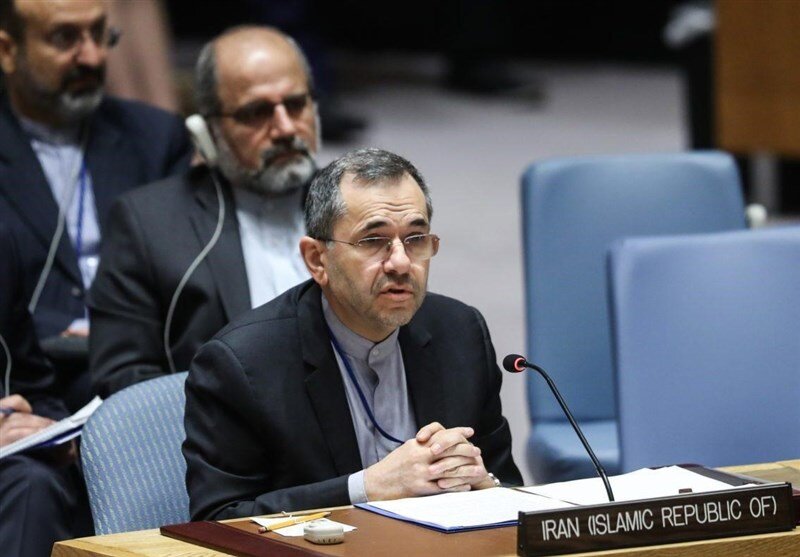Iran says UNSC’s indecisiveness undermines world peace

TEHRAN — Majid Takht-Ravanchi, Iran’s ambassador to the United Nations, has strongly criticized the UN Security Council, saying the Council’s “indecisiveness, indecision and ineffectiveness” have undermined regional and international peace and security.
Delivering a speech to the meeting of the General Assembly of the United Nations on Monday, Takht-Ravanchi enumerated the ways the Security Council has failed to uphold international peace and security.
“Last year, parallel to the Israeli regime’s unlawful construction and expansion of settlements, its inhumane blockade of Gaza and its other criminal measures towards the Palestinians, the Council’s historic inaction and utter silence towards this crisis has also continued,” he said.
“The U.S. policy regarding Resolution 2231 and the JCPOA challenges the relevance and accountability of the Council,” Takht-Ravanchi maintained.“Moreover, last year, meddling and destabilizing activities of the U.S. in the Middle East continued, including through the occupation of parts of Syria, looting its oil and imposing unilateral sanctions against that country amid the COVID-19 pandemic,” he added.
Takh-Ravanchi pointed to the Donald Trump-ordered assassination of Lieutenant General Qassem Soleimani, Iran’s top anti-terror general, saying the U.S. act was called by many international lawyers and scholars as a clear violation of the UN Charter and international law but the Council was utterly silent.
According to the diplomat, the U.S. has threatened UN members to defy Resolution 2231 or face punishment. “In pursuance of this destructive policy, the U.S. now has placed the UN under maximum pressure to ultimately kill the JCPOA.”
Pointing to Washington’s recent efforts to extend an arms embargo on Iran and trigger the reimposition of international sanctions on the country, Takht-Ravanchi said, “Having failed to convince the Council members through deceptive justifications, pseudo-legal arguments and arbitrary interpretation of Resolution 2231 as well as political pressure and intimidation, now, the U.S. stubbornly argues that the sanctions will return on September 20.”
“The U.S. policy regarding Resolution 2231 and the JCPOA challenges the relevance and accountability of the Council,” he maintained.
Therefore, he continued, in fulfilling its obligation under Charter’s Article 15(1), the Assembly must pay due attention to the principle of accountability of the Council and its members.
Takht-Ravanchi concluded his remarks by saying that in order to enable the Assembly to have a clear account of the overall situation of international peace and security while considering the Council’s report, it is recommended that the introduction of the report be more analytical.
MH/PA
